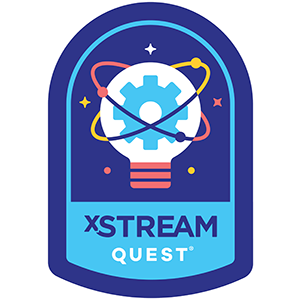As I have gotten older, I have become more concerned about keeping my brain sharp. Cleveland Clinic has a site called "Healthy Brains," which provides a free "brain checkup." I am the proud owner of a brain with a Brain Health Index of 79. Well, I'm not sure how proud I should be of what is considered a C+ grade. How healthy is your brain? Take the assessment at https://healthybrains.org/healthy-brains-initiative/.
Unfortunately, scoring the brain health of a young child cannot be done by having the little one take an online test. In the early years, each child develops in their own unique way. Yes, there are developmental milestones or benchmarks that are considered "normative" or "typical," but all-in-all, each child has their own unique development path. Fortunately, children can be guided along this path by the adults in their lives.
Unfortunately, scoring the brain health of a young child cannot be done by having the little one take an online test. In the early years, each child develops in their own unique way. Yes, there are developmental milestones or benchmarks that are considered "normative" or "typical," but all-in-all, each child has their own unique development path. Fortunately, children can be guided along this path by the adults in their lives.

I spent a lot of time researching brain development when I was studying for my doctorate. It fascinates me that a baby's brain doubles in size during the first six months and by two years old, a child's brain is only three ounces lighter than that of an adult. Even more astounding, new brain research based in modern technology has shown that 95% of a child's learning foundation is laid in the first five years of their life. Child-oriented environments and sensitive relationships are proving to be key elements to healthy growth.
When it comes to helping children have good brain health, adults should be self-reflective in the ways that they are helping young children develop. To do this, it is good to first know the components of healthy brain development. You might be surprised, but brain health depends on basically the same five elements, no matter what the age.
When it comes to helping children have good brain health, adults should be self-reflective in the ways that they are helping young children develop. To do this, it is good to first know the components of healthy brain development. You might be surprised, but brain health depends on basically the same five elements, no matter what the age.
- Physical Movement
- Regular Checkups
- Adequate Sleep
- Mental Challenge
- Positive Relationships
Is your child physically active? Are you? Does your family stay on top of regular health checkups? How about sleep habits? Adequate sleep can improve cognitive functioning tremendously. See the chart below for recommended amounts of sleep for various ages. Providing children with mental challenges early on also helps set the stage for healthy development, as well as nurturing, supportive relationships with those around them.
Sleep Requirements
1-12 months old: 14-15 hours daily
1-3 years old: 12-14 hours daily
3-6 years old: 10-12 hours daily
7-12 years old: 10-11 hours daily
Sleep Requirements
1-12 months old: 14-15 hours daily
1-3 years old: 12-14 hours daily
3-6 years old: 10-12 hours daily
7-12 years old: 10-11 hours daily
The website Healthy Baby, Healthy Brain is a treasure trove of great information regarding helping children and infants through age three develop healthy brains. There you can find a wonderful series of short videos on your role as a parent in helping your child develop a healthy brain through love, playing and good health. I get a warm, fuzzy feeling knowing that I am helping to build a beautiful brain when I play with the children that I love!
Children's Lighthouse is committed to providing early learning environments that develop healthy "brains, bodies and best behaviors." Come by for a tour and see synaptic connections being made firsthand.
Children's Lighthouse is committed to providing early learning environments that develop healthy "brains, bodies and best behaviors." Come by for a tour and see synaptic connections being made firsthand.


